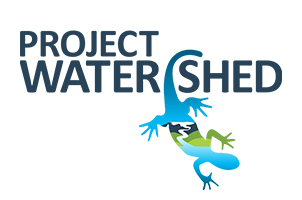Image Caption: The huge Thompson River has a drainage area of more than 50,000 square kilometres. British Columbia has tens of thousands of rivers that contribute greatly to our quality of life, Mark Angelo writes.
[av_hr class=’short’ height=’50’ shadow=’no-shadow’ position=’center’ custom_border=’av-border-thin’ custom_width=’50px’ custom_border_color=” custom_margin_top=’30px’ custom_margin_bottom=’30px’ icon_select=’yes’ custom_icon_color=” icon=’ue808′ font=’entypo-fontello’]
A changing climate will impact our waterways but it’s a challenge we should not give up on.
By Mark Angelo
Rivers face an array of challenges and much has been written about the more obvious pressures; pollution, urbanization, the excessive extraction of water and the building of dams. These are certainly cause for concern on many specific waterways but it’s the sometimes subtle and far reaching impact of climate change that could ultimately pose the greatest obstacle to protecting our rivers.
There’s no doubt that the world’s climate is changing. We live in an era of increasing incidents of drought, ocean acidification, super storms, rising ocean levels and water shortages. Adapting to a warmer world won’t be easy and, in a coastal province such as BC, much of the attention has understandably focused on the long term threats to communities and cities associated with rising sea levels.
But as a long time river advocate, I’m also deeply concerned about the impact of climate change on the health of our waterways and the values they sustain. We live in a beautiful, rugged province with literally tens of thousands of rivers which contribute greatly to the quality of life we enjoy. Our waterways have done much to define us as British Columbians and our river heritage ranks amongst the finest in the world.
As climate change progresses though, there will be increasing impacts on water resources. In fact, many of our rivers and streams are already changing. In some cases, flow regimes have been altered; for others, seasonal water temperatures have increased and fish survival rates are not as robust. If these trends continue and worsen, there will be escalating affects on communities, industry, infrastructure, and recreational opportunities.
To address this in any substantive way will require a long term plan that attempts to deal with the changes that are foreseen. Such changes range from vanishing glaciers which, in past, have fed many rivers in summer months, to a greater frequency of floods and droughts.
Compared to other jurisdictions around the world, British Columbia will probably become wetter overall, while experiencing specific seasonal changes. Fall, winter and spring will be warmer and wetter, while summers will be hotter and drier. Many coastal rivers, now dependent on both snowmelt and rain, may become largely rain fed. That will mean higher flows in the fall and winter, but lower flows and higher water temperatures in spring and summer.
Such changes will also impact the many life forms that rivers support. For example, average Fraser River water temperatures have increased by almost 2 degrees over the past fifty years creating problems for fish such as sockeye salmon. This has resulted in higher pre-spawning mortality amongst returning adults while also reducing survival rates for young fish.
To counter this, an appropriate management response requires the development of a more precautionary, conservative approach to the fishery. At the very least, this would provide affected salmon stocks with an increased chance of survival.
In terms of other actions, water and river-related laws should be modernized and strengthened to better protect water resources and ecosystems. On a positive note, the recent modernization of the century-old BC Water Act was generally a step forward but, at the same time, the severe weakening of the federal Fisheries Act last year was, very much, a step backwards.
At local levels, we should develop definitive action plans and strategies enabling us to better manage water in times of drought, not just for the good of the public, but also for the benefit of aquatic ecosystems. Clearly, there are lessons to be learned from the drought experienced in southern British Columbia in 2009. We are often wasteful of water but, if we can manage our water resources more efficiently, we can provide for human needs while ensuring that adequate river flows remain for fish.
Finally, on a broader front, we must continue to pressure governments to take appropriate action to address climate change in the strongest and boldest way.
There’s no question that there will be tremendous challenges in the coming decades if we are to protect rivers and fish in the midst of a changing climate. But in no way are we helpless.
For many local waterways, varying predictions have been made about how salmon and other fish will fare. Many are pessimistic while others hope for an adaptive response enabling some species to adjust to altered conditions.
No one knows for sure what will unfold. Without question, it will be an “upstream battle” – but it’s one we should not give up on. Our rivers and our fish stocks are simply too precious.
http://www.vancouversun.com/technology/Opinion+upstream+battle+save+rivers/10793825/story.html

